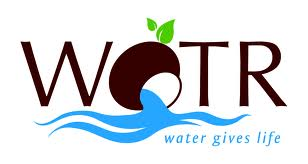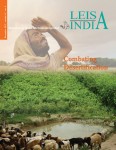/sub-categories/success-stories-and-case-studies
Success Stories and Case Studies
Mobiles come to the aid of farmers in Maharashtra, and help give locale-specific agro-advisories
Posted on 12 Jan, 2013 03:56 PM
Traditional diversion-based phad irrigation systems help mitigate risk of crop failure in the drought-prone farmer suicide belt of Vidarbha, Maharashtra
Posted on 11 Jan, 2013 11:56 AMMany of these systems (1) continue to function and are often more sustainable, cost-effective and successfully managed by local institutions. Phads are one such community-based and managed diversion irrigation management system (2) prevailing in the north-western part of Maharashtra and date back to the early 16th century as per historical accounts. The system is prevalent in the Tapi basin on rivers the Panjhra, Mosam and Aram in Dhule and Nashik districts (3).
Phads or diversion-based irrigation systems, are being revived and promoted in Vidarbha region of Maharashtra by Dilasa, a Yavatmal-based voluntary development organisation (Video courtesy: Dilasa)
Forced displacement: A gendered analysis of the Tehri dam project, Uttarakhand - An article in EPW
Posted on 10 Jan, 2013 08:18 PMThis paper by Vandana Asthana in the Economic and Political Weekly (EPW) examines the lived experiences of displaced women based on the empirical findings of research that looks at women displaced by the construction of the Tehri Dam and their relocation elsewhere.
On the Sabarmati riverfront: Urban planning as totalitarian governance in Ahmedabad, Gujarat – An article in EPW
Posted on 10 Jan, 2013 07:05 PMLEISA magazine special issues in Hindi, Tamil and Telugu - A compilation of selected articles on combating desertification
Posted on 10 Jan, 2013 12:08 PMLow external input and sustainable agriculture (LEISA) India has come up with a collection of alternative ways of combating desertification in the fragile region of the country in its recent issue. The articles are success stories of such intiatives by farmers and NGOs.
Moving from local Government provision to private sector participation: Reforming water supply in Mumbai, Maharashtra
Posted on 09 Jan, 2013 08:23 PMUrban infrastructure is poised for some major changes in the country with the current trends of rising levels of urbanisation. However, both Urban Local Bodies (UBL) and water utilities are not fully prepared to meet with the challenge due to their dependence on old governance structures based on public management.
Water monitoring challenge in Yamuna basin- Educating communites along the river about the importance of water testing & quality
Posted on 03 Jan, 2013 11:01 PMWater, water everywhere, not a drop to drink! How truly these lines depict the picture of present scenario. There are lots of organizations, people and experts involved in the discussions and making efforts at international level to have safe, sustainable drinking water for all. Yet the efforts are not enough…
